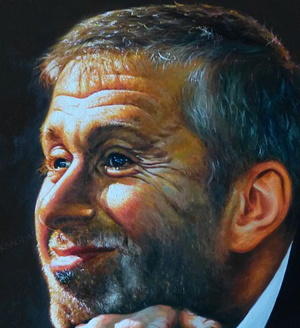
As the 21st century has gone on it’s seemed as though every other club is owned by a foreign investor. It’s something that certain tabloids make something of a fuss about, decrying the development of the game every time a club is sold to non-English or British investors.
Yet is it really that big a deal? How many clubs in the Football League are owned by people not from these shores and does how owns your club affect you that much as a supporter? Foreign owners have garnered a bit of a bad reputation over the past fifteen years or so, but is that a fair reflection of how clubs are run?
Those answers are not straightforward to come by, with one set of fans believing their club’s owner is a leech whilst different supporters of the same club will see them as a saviour. It’s also fair to say that ownership in general is a complicated issue. Only in a few instances is a club owned outright by one person.
More often than not it is a combination of people or companies who own different stakes in a club. For the purposes of ease we won’t distinguish between people and companies when we refer to who has a percentage of a club to their name. Equally we’ll call everyone on the list an ‘owner’, even if they only have a small stake in a club.
Premier League Team Owners
| Team | Owner |
|---|---|
| AFC Bournemouth | Turquoise Bidco Limited / Black Knight Football |
| Arsenal | Kroenke Sports & Entertainment |
| Aston Villa | Nassef Sawiris, Wes Edens |
| Brentford | Matthew Benham |
| Brighton & Hove Albion | Tony Bloom |
| Burnley FC | ALK Capital |
| Chelsea | BlueCo |
| Crystal Palace | Steve Parish, Joshua Harris, David S. Blitzer, Jeremy Hosking, Martin Long, Stephen Browett |
| Everton | Farhad Moshiri |
| Fulham | Shahid Khan |
| Liverpool | Fenway Sports Group |
| Luton Town | Luton Town Football Club 2020 Ltd |
| Manchester City | City Football Group |
| Manchester United | Manchester United plc |
| Newcastle United | PIF, RB Sports and Media, PCP Capital |
| Nottingham Forest | Evangelos Marinakis |
| Sheffield United | Abdullah bin Musa'ed bin Abdulaziz Al Saud, Kevin McCabe |
| West Ham United | David Sullivan & David Gold |
| Wolverhampton Wanderers | Fosun International |
Team Owners For Other UK Leagues
Championship
| Team | Owner |
|---|---|
| Birmingham City | Birmingham Sports Holdings |
| Blackburn Rovers | Venky's London Ltd. |
| Bristol City | Stephen Lansdown |
| Cardiff City | Vincent Tan |
| Coventry City | Doug King |
| Huddersfield Town | Dean Hoyle |
| Hull City | Acun Medya |
| Ipswich Town | Gamechanger 20 Ltd |
| Leeds United | Aser Group Holding |
| Leicester City | King Power International |
| Middlesbrough | Steve Gibson |
| Millwall | Millwall Holdings plc |
| Norwich City | Delia Smith & Michael Wynn Jones |
| Plymouth Argyle | Simon Hallett |
| Preston North End | Craig Hemmings |
| Queens Park Rangers | Tune Group, Total Soccer Growth |
| Rotherham United | Tony Stewart |
| Sheffield Wednesday | Dejphon Chansiri |
| Southampton | Sport Republic |
| Stoke City | Bet365 |
| Sunderland | Kyril Louis-Dreyfus |
| Swansea | Stephen Kaplan, Jason Levien, Jake Silverstein |
| Watford | Gino Pozzo |
| West Bromwich Albion | Lai Guochuan |
League One
| Team | Owner |
|---|---|
| Barnsley | BFC Investment Company Limited |
| Blackpool | Simon Sadler |
| Bolton Wanderers | Football Ventures (Whites) Ltd |
| Bristol Rovers | Hussain AlSaeed, The Jordanian Al Qadi Family |
| Burton Albion | Ben Robinson |
| Cambridge United | Paul Barry |
| Carlisle United | Andrew Jenkins, Steven Pattison and John Nixon |
| Charlton Athletic | Thomas Sandgaard |
| Cheltenham Town | CTFC Investments Ltd & The Robins Trust |
| Derby County | David Clowes |
| Exeter City | Exeter City Supporters' Trust |
| Fleetwood Town | Andrew Pilley |
| Leyton Orient | Nigel Travis |
| Lincoln City | Lincoln City Holdings Ltd |
| Northampton Town | Kelvin Thomas |
| Oxford United | Erick Thohir & Anindya Bakrie |
| Peterborough United | Darragh MacAnthony, Kelgary Sports & Entertainment |
| Port Vale | Synsol Holdings Limited |
| Portsmouth | Michael Eisner (Tornante Group) |
| Reading | Dai Yongge and Dai Xiuli |
| Shrewsbury Town | Roland Wycherley |
| Stevenage | Phillip Wallace |
| Wigan Athletic | Mike Danson |
| Wycombe Wanderers | Feliciana EFL Limited, Wycombe Wanderers Trust |
League Two
| Team | Owner |
|---|---|
| Accrington Stanley | Andy Holt |
| AFC Wimbledon | The Dons Trust |
| Barrow AFC | Paul Hornby (Local Consortium) |
| Bradford City | Stefan Rupp |
| Colchester United | Robbie Cowling |
| Crawley Town | WAGMI United |
| Crewe Alexandra | Crewe Alexandra Group Limited |
| Doncaster Rovers | Doncaster Rovers Limited |
| Forest Green Rovers | Dale Vince |
| Gillingham | Brad Galinson |
| Grimsby Town | 1878 Partners, Mike Parker, The Mariners Trust |
| Harrogate Town | Irving Weaver |
| Mansfield Town | Carolyn & John Radford |
| MK Dons | Pete Winkelman |
| Morecambe | Bond Group Investments |
| Newport County | Newport County AFC Supporters Trust |
| Notts County | Alexander and Christoffer Reedtz |
| Salford City FC | Class Of '92 Ltd |
| Stockport County | Mark Stott |
| Sutton United | Sutton United Football Club Limited |
| Swindon Town | Clem Morfuni |
| Tranmere Rovers | Mark & Nicola Palios |
| Walsall | Trivela Group |
| Wrexham A.F.C | Rob McElhenney and Ryan Reynolds |
Scotland
| Team | Owner |
|---|---|
| Accrington Stanley | Andy Holt |
| AFC Wimbledon | The Dons Trust |
| Barrow AFC | Paul Hornby (Local Consortium) |
| Bradford City | Stefan Rupp |
| Colchester United | Robbie Cowling |
| Crawley Town | WAGMI United |
| Crewe Alexandra | Crewe Alexandra Group Limited |
| Doncaster Rovers | Doncaster Rovers Limited |
| Forest Green Rovers | Dale Vince |
| Gillingham | Brad Galinson |
| Grimsby Town | 1878 Partners, Mike Parker, The Mariners Trust |
| Harrogate Town | Irving Weaver |
| Mansfield Town | Carolyn & John Radford |
| MK Dons | Pete Winkelman |
| Morecambe | Bond Group Investments |
| Newport County | Newport County AFC Supporters Trust |
| Notts County | Alexander and Christoffer Reedtz |
| Salford City FC | Class Of '92 Ltd |
| Stockport County | Mark Stott |
| Sutton United | Sutton United Football Club Limited |
| Swindon Town | Clem Morfuni |
| Tranmere Rovers | Mark & Nicola Palios |
| Walsall | Trivela Group |
| Wrexham A.F.C | Rob McElhenney and Ryan Reynolds |
English Football Club Ownership By Nationality
One of the most interesting questions might well be about whether or not foreign owners are less interested in buying a controlling stake in a club lower down the Football League. We’ll start, then, by taking a quick look at the top flight at the time of the 2017-2018 season before moving on to the other clubs that play in the English professional leagues.
The graphs below show all of the percentage owners (of all owners) in each league by nationality. Of course there can be several owners of one club, therefore this is not overall percentage ownership of football clubs.
The Premier League
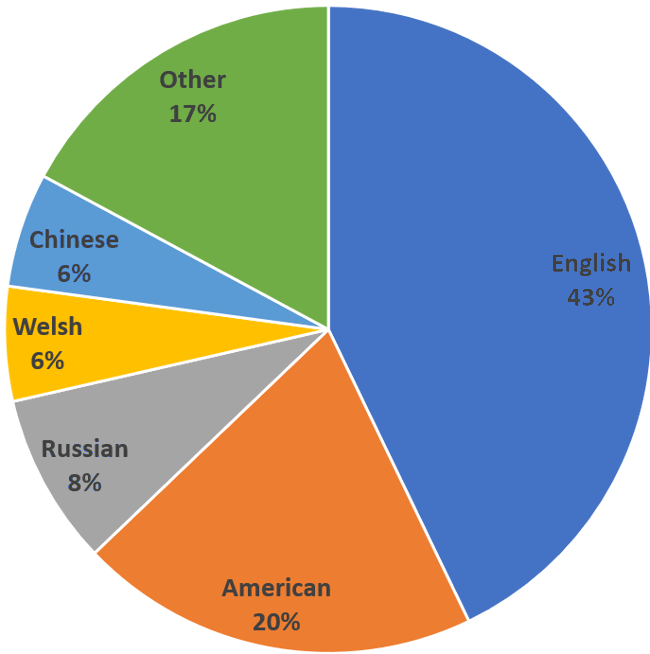
English Owners – 15
At the time of writing there are fifteen English people or families with a stake in the twenty top-flight clubs. That includes the likes of the Coates family at Stoke City, Mike Ashley at Newcastle and David Gold at West Ham United.
American Owners – 7
Despite the suggestions in the press that American’s are taking over the Premier League, there are less than half the number of Americans compared to English owners. Two of those include Joshua Harris and David S.Blitzer at Crystal Palace, who are outnumbered three to two by English counterparts on the club’s board. At Bournemouth there isn’t an American person so much as a US company to think about, namely PEAK6 Investments.
Russia Owners – 3
If the tabloids are afraid of American owners taking over the place then they’re positively petrified of the Russians. This in spite of the fact that there are just three with large stakes in English clubs and one of those is Roman Abramovich at Chelsea; a man who has single-handedly changed the game’s finances.
Welsh Owners – 2
If you consider the Supporters Trust at Swansea, who own just over 21% of the club, to be a ‘person’ then you’re looking at two Welsh owners of Premier League clubs. The other is David Sullivan who owns just over half of West Ham United.
Chinese Owners – 2
Again, using the term ‘owners’ to represent either a person or a company from a particular geographical local, there are two Chinese owners in the top-flight. One of these is actually the Chinese government itself, which has a 13% stake in Manchester City.
Iranian Owners – 1
There is only one Iranian owner of a Premier League club at the time of writing, which is Farhad Moshiri at Everton. Even that is slightly confusing, with Moshiri having been born in Iran but raised in the UK. He has been a business partner of Alisher Usmanov, the Russian business magnate who owns shares in Arsenal.
Emirati Owners – 1
If Roman Abramovich changed the way football finance was looked at then Mansour bin Zayed Al Nahyan, better known as Sheikh Mansour, took things to another level when he took over at Manchester City in 2008. He now also owns a stake in Melbourne City F.C and New York City F.C.
Swiss Owners – 1
Katharina Liebherr’s ownership of Southampton came about after her father, Markus Liebherr, passed away in 2010. That was just a year after his purchase of Saints went through for a fee believed to be in the region of £15 million.
Italian Owners – 1
Interesting Katherina Liebherr’s ownership of Southampton isn’t the only one that is due to an inheritance. Gino Pozzo took over Watford from his father, Giampaolo Pozzo. The Pozzo family are well invested in football, owning both Granada and Udinese alongside the Hornets.
Icelandic Owners – 1
West Ham United’s trio of diverse owners is completed by the Straumur Investment Bank, Iceland’s only investment bank. The 10% they own is significantly less than both David Sullivan’s 51% and David Gold’s 35%.
Thai Owners -1
Despite their only being one Thai owner of a Premier League club, they can claim to have achieved more than any other nationality. The Srivaddhanaprabha Family made the decisions that led to Leicester City’s remarkably unlikely Premier League win in 2016.
The Championship
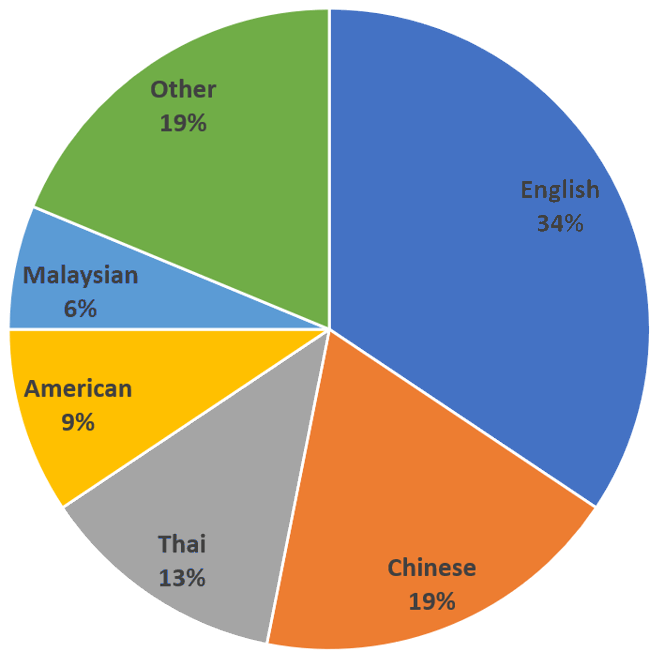
English Owners – 11
You’ll find as you read on that’s it’s decidedly interesting that there are less English owners in the Championship than in the Premier League. This is because there are significantly less foreign owners in both League One and League Two. Are Championship clubs seen as the best investment opportunities? The chance to end up in the Premier League but without the premium that is no doubt attached to top-flight clubs when attempting to purchase them? Perhaps.
Chinese Owners – 6
There could be four or five Chinese owners of Championships clubs, depending on how strict you want to be. For the purposes of simplicity we’ve included Carson Yeung at Birmingham City as Chinese, despite his being from Hong Kong. Similarly we’ve included Guo Guangchang as an owner of Wolverhampton Wanderers alongside Fosun International, even though he owns part of Fosun.
Thai Owners – 4
There are four different Thai owners of clubs in the Championship, even though three of them actually have a stake in the same club. Narin Niruttinanon has a 50% stake in Reading, with Sasima Srivikorn and Sumrith Thanakarnjanasuth both having 25% each. Dejphon Chansiri, meanwhile, owns Sheffield Wednesday all to himself.
American Owners – 3
Considering their prominence in the Premier League, it’s intriguing to see that there are so few American owners of clubs in the Championship. Even the three mentioned isn’t quite accurate, with Shahid Khan having been born in Pakistan. As well as owning Fulham he also owns the Jacksonville Jaguars in the NFL, so his American credentials are good enough!
Malaysian Owners – 2
There are two Malaysian business people with ownership claims in Championship clubs, namely Vincent Tan at Cardiff City and Tony Fernandes at Queens Park Rangers.
Welsh Owners – 1
On the one hand it’s quite surprising that only Norwich City are part owned by a Welsh person, yet on the other there is an entire Welsh league for business people from there to invest in. Still, Michael Wynn-Jones is the only one flying the dragon flag.
Greek Owners – 1
Evangelos Marinakis’s purchase of Nottingham Forest in 2017 meant that the division lost a Kuwaiti owner but took on a Greek one. The only Greek owner in the entire Football League, in fact.
Indian Owners – 1
Tony Fernandes owns the majority of Queens Park Rangers and has the controlling stake accordingly, but Lakshmi Mittal has a 33% stake in the club to represent Indian owners in the second flight.
Saudi Owners – 1
Speaking of controlling stakes, Abdullah bin Musa’ed has a 50% share of Sheffield United and is therefore the major voice for footballing operations at one of England’s oldest clubs.
Italian Owners – 1
As with the Pozzo family at Watford, there is just one Italian owner in the Championship. Andrea Radrizzani is the person who calls the shots at Leeds United.
Egyptian Owners – 1
The Allam Family’s ownership of Hull City has been fraught with protest, anger and disappointment ever since they took over the club. Remember the fuss about them wanting to change the name from Hull City Association Football Club to Hull City Tigers?
League One
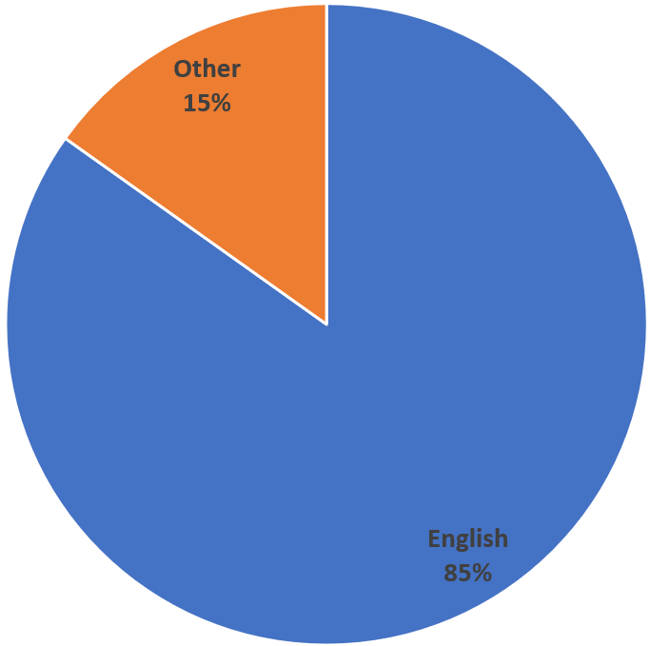
English Owners – 26
As mentioned before, it’s intriguing that there are as many English owners of League One clubs alone as there are of Premier League and Championship clubs combined. To some extent that’s because things have gone wrong at the clubs in the past and so Supporters Trusts have taken over, such as at Portsmouth. Mainly, though, it’s because it just isn’t as glamorous to own a League One side as the top two leagues in the country. Owen Oyston at Blackpool is the perfect example of an owner who isn’t brilliant just because he’s English. He’s widely reviled by the majority of Blackpool fans for the way he runs the club.
Irish Owners – 1
When Darragh MacAnthony took over at Peterborough United in 2006 he became the youngest chairman in the entire Football League, aged just thirty. He’s a Liverpool fan and promised the fans the club would be promoted to the Championship from League Two within two years. It was, but then got relegated back down again.
Scottish Owners – 1
Doncaster Rovers is predominantly owned by Englishmen John Ryan and Tony Bramall, but Dick Watson is flying the flag for Scottish owners. Indeed, at the time of writing he’s the only one. Presumably because most others feel owning a Scottish club is easier than travelling South of the border.
Belgian Owners – 1
It’s fair to say that Roland Duchatelet has led an interesting life. Not only does he own five football clubs including Charlton Athletic, he also managed to turn his personal philosophy into a political movement named Vivant. Charlton supporters will be hoping his ownership of their club is just as progressive.
Jordanian Owners – 1
The only Belgian, Scottish and Irish owners in the entire Football League are based in League One, so it’s not overly surprising that the third division also boasts the only Jordanian one, too. Dwane Sports, owned by Wael Abdulkader Al-Qadi and his family, took over in 2016.
Indian Owners – 1
The V H Group formed a holding company known as Venky’s London Limited and took over Blackburn Rovers in 2010. Their running of the club has not impressed the Blackburn supporters, with the team being relegated from the Premier League in 2012 and ending up in League One in 2017.
Latvian Owners – 1
There were no Latvian owners in League One prior to Blackpool’s promotion back into the division ahead of the 2017-2018 season. It’s interesting that Valeri Belokon gets nowhere near the same level of criticism for the running of the Seasiders as Owen Oyston, perhaps because he only has a 25% stake in the club.
League Two
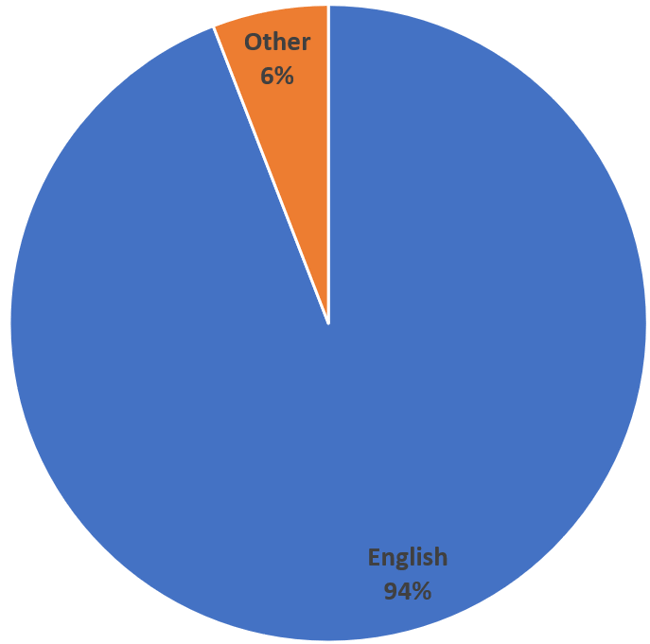
English Owners – 32
Maintaining the theory that lower league clubs aren’t as glamorous or tempting for foreign investors to own is the fact that there are 30 English owners of League Two clubs. There are several noteworthy factors in play here. For starters, five different clubs are at least partially owned by supporters trusts. Another interesting fact is that Cambridge United is partially owned by the Grosvenor Group, which is in turn owned by the Duke of Westminster and his family.
Finnish Owners – 1
There’s something of a coalition going on at Coventry City at the time of writing, with Joy Seppala from Finland and the American Dermot Coleman maintaining joint ownership.
American Owners – 1
Rounding off the owners of League Two clubs is Dermot Coleman, the man mentioned above with the Finnish Joy Seppala at Coventry. The owners of Sisu Capital, the private hedge fund sponsors, have been in charge of the Sky Blues since 2007. Pretty much since the day they took over there have been protests, with the Sky Blue Trust attempting to oust them owing to their penny-pinching running of the club.
Well-Known Owners
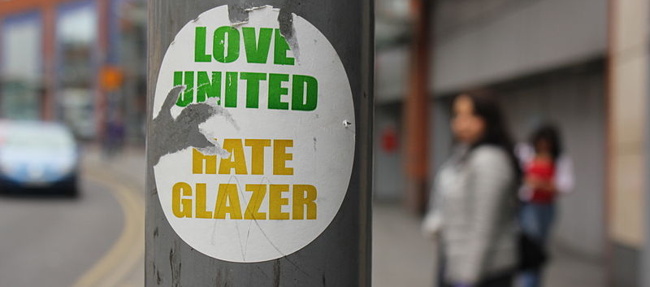
There seem to be two different types of football club owners: those that go quietly about their business and are generally well liked by supporters and those that do the opposite. Liverpool fans disliked their previous owners Hicks and Gillett that much that they protested in the street and things ended up being taken to the High Court to be resolved.
Some owners aren’t exactly liked by supporters, such as the Glazers at Manchester United, but as longs the club keeps performing well there’s no real need to protest for their removal. Others like Mike Ashley at Newcastle United would probably be quite good owners if they could resist the urge to get involved with the running of the club every opportunity. Magpie fans will tell you that when Ashley keeps his nose out of things and leaves the running of the club to the manager things go swimmingly. It’s only when he interferes that things aren’t at their best.
The reality is that football fans will almost always believe that their owners could be doing more or running the club better. You’ll find as many Manchester City fans who believe that the manner of the club winning titles after being taken over by billionaires is ruining the game as you will Everton supporters who would love for their club to spend as much money as possible. The truth probably lies somewhere in the middle, with clubs like Leeds United a prime example of what can go wrong if clubs aren’t run in a sustainable manner.
A good rule of thumb to go by is that if you know the name of the owners of a club that you don’t support then they’re probably not doing a particularly good job. There are some examples of that, like Roman Abramovich at Chelsea, but most football fans know his name because he changed the face of football in a manner that not everyone approves of.
Owners Nationalities
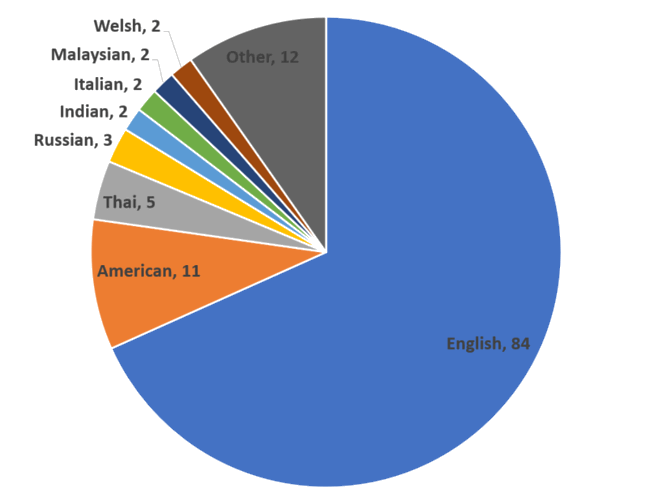
Does the nationality of a football club’s owner really matter? If they understand the sport and have a connection with supporters then the answer is ‘probably not’. During the title run-in, Leicester City’s Thai owners would provide fans with free beer ahead of games in order to get the fans excited and noisy ahead of kick-off. That’s obviously great, but then they sacked Claudio Ranieri the year after the Italian had done the impossible. Is that a sign that they get the club and its culture or not?
When it comes to the nationality of owners in the Football League the list, as far as we’ve been able to discern it, is as follows:
- 84 English Owners
- 11 American Owners
- 8 Chinese Owners
- 5 Thai Owners
- 3 Russian Owners
- 3 Welsh Owners
- 2 Indian Owners
- 2 Italian Owners
- 2 Malaysian Owners
- 1 Iranian Owner
- 1 Latvian Owner
- 1 Finnish Owner
- 1 Belgian Owner
- 1 Scottish Owner
- 1 Irish Owner
- 1 Egyptian Owner
- 1 Jordanian Owner
- 1 Icelandic Owner
- 1 Greek Owner
- 1 Swiss Owner
- 1 Emirati Owner
You can draw your own conclusions from the above list, but it’s fair to say that English owners are still very much in the ascendancy when it comes to the owning, at least in part, of clubs in the Football League. In fact, there are more English shareholders of Football League clubs than all other nationalities combined.
Is that suggestive of the notion that tabloid headlines such as the Daily Mail’s claim that 57% of England’s top-tier clubs are foreign owned is slightly misleading? Probably, but then when have tabloids ever allowed the truth to get in the way of a good story?
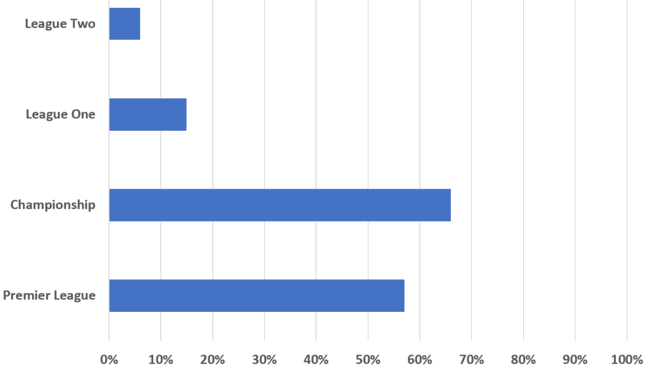
The truth is that a person or company’s nationality has little to do with whether or not they’re likely to be a good owner. There are plenty of English owners who are either only in it for money, don’t care about the club and its supporters or else don’t know how to run a football club in any way, shape or form. Similarly there are plenty of owners from foreign shores that might not know much about football but are keen to learn.
When Liverpool supporters eventually discovered that Hicks and Gillett had been booted out of the club they were somewhat dismayed to learn that more American owners had taken over. Fenway Sports Group might not be the perfect owners as far as some fans are concerned, but they backed down on raising ticket prices when supporters protested and also changed the way that the interacted with supporters after complaints were made. Not many club’s supporters can claim to be listened to that much. Perhaps it’s fitting, then, to leave the last word on ownership to the father of modern day Liverpool Football Club, Bill Shankly:
“At a football club, there’s a holy trinity – the players, the manager and the supporters. Directors don’t come into it. They are only there to sign the cheques.”
